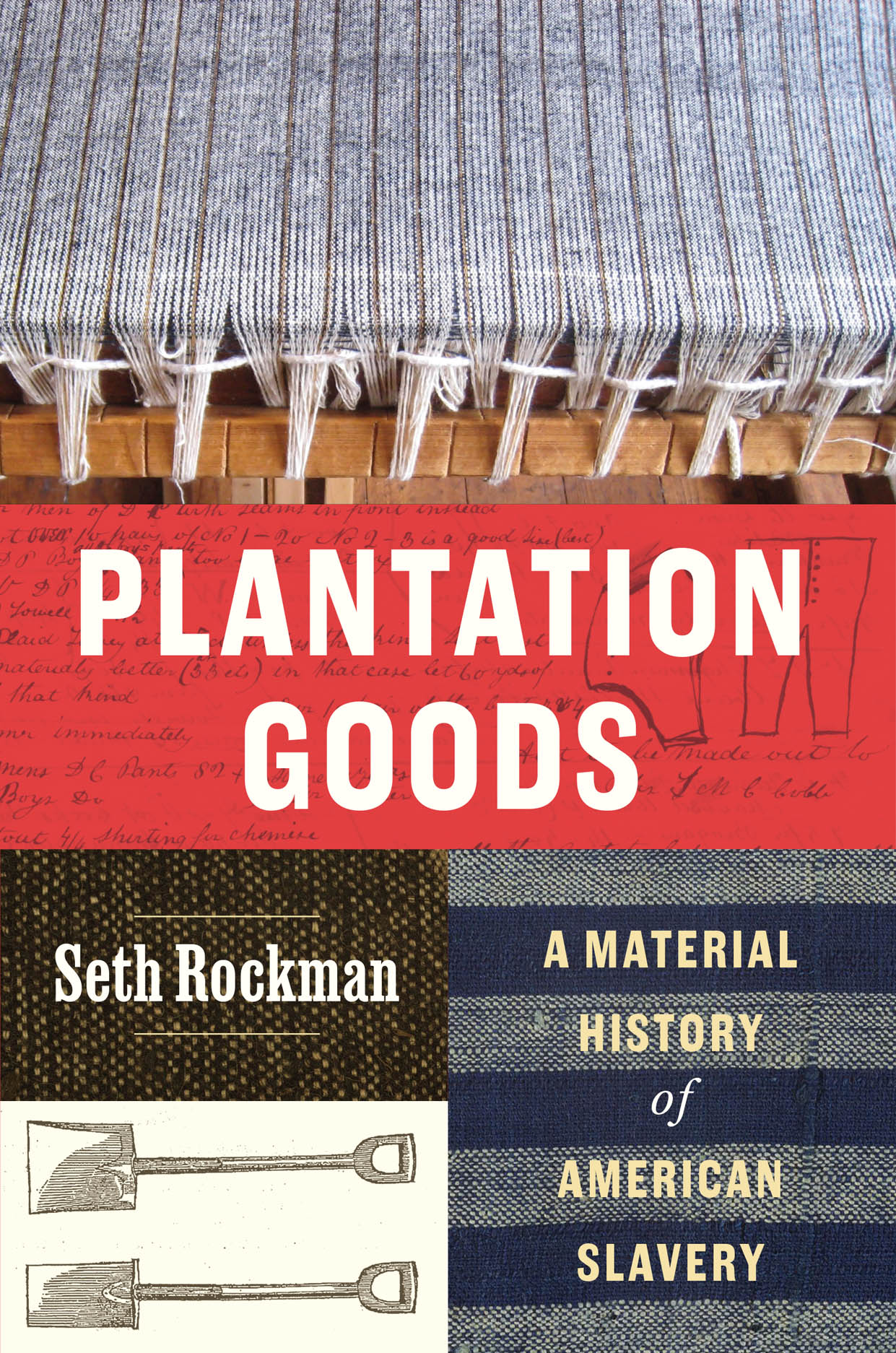The heart of Plantation Goods: A Material History of American Slavery, Seth Rockman’s new book, is not any particular Southern plantation but rather an early 19th-century textile company run by two aptly named brothers, Rowland and Isaac Hazard. Rowland was a genius with more than a touch of madness—“a sort of muted Quixotism impels me to attack the very windmills of metaphysics,” he once wrote—while Isaac suffered from chronic diarrhea but had a solid head for business; he could not contemplate Niagara Falls without wondering how much cloth its water power would produce. In the 1820s and ’30s, this odd couple led their company to the pinnacle of a newly important market segment: so-called “negro cloth,” named for the enslaved people who were its intended wearers.
But the Hazards were not based in the South, where so many of their wares were sold. Instead, the essence of Rockman’s book is expressed in the fact that the headquarters of the Hazard textile empire lay in Rhode Island. The Hazards’ business of supplying fabric for slaves employed towns full of free white families trying to claw their way into the middle class—or to cling desperately to it—at a time of rapid economic growth and change. Rockman follows the flow of goods from the Hazards and their free white employees through merchants in New York or Philadelphia to plantation owners and finally enslaved laborers, using those connections to illuminate the inner workings of early American capitalism.
Rockman, a professor of history at Brown University, is no stranger to this complex and often contradictory world. His first book, Scraping By: Wage Labor, Slavery, and Survival in Early Baltimore (2008), made him a leader in the now-thriving field of the history of capitalism, which flourished after the financial crisis of 2007–08 revealed in real time that economic markets were not handed down by nature or God but were the products of human history, with all its manifest imperfections and failures. In Scraping By, Rockman focused on early 19th-century Baltimore, a boomtown port perched between the North and the South, with a focus on how a motley assortment of slaves, free Blacks, European immigrants, and native-born whites managed to make ends meet. As with other early entries in the resurgent history-of-capitalism field, the thrust of Rockman’s work was to cast “the market’s power as a force of human liberation” firmly into doubt. Far from being incompatible, slavery and wage work could coexist rather comfortably, he showed, as two forms of unequal and exploitative labor relations within a capitalist system.
